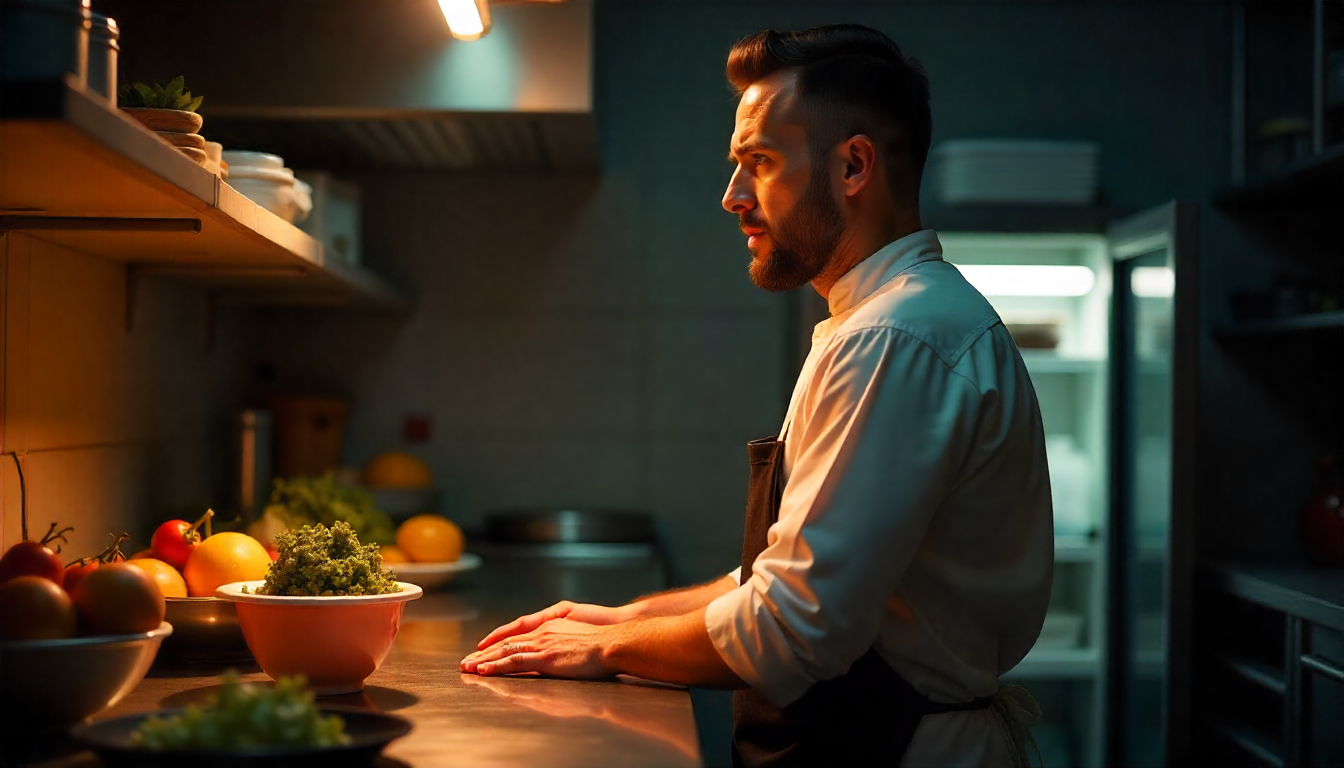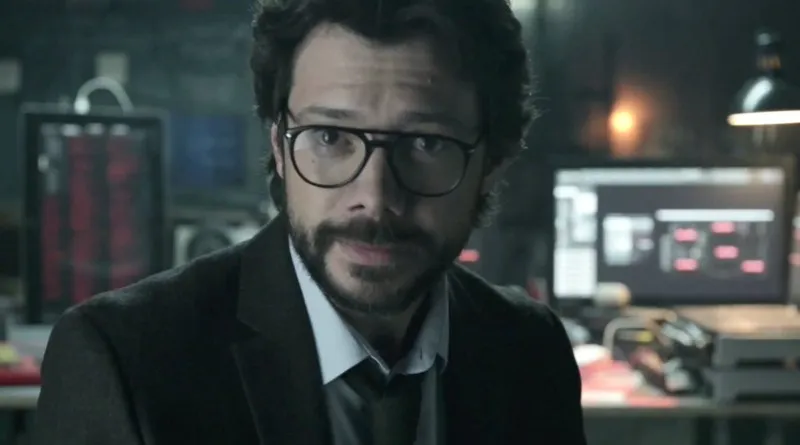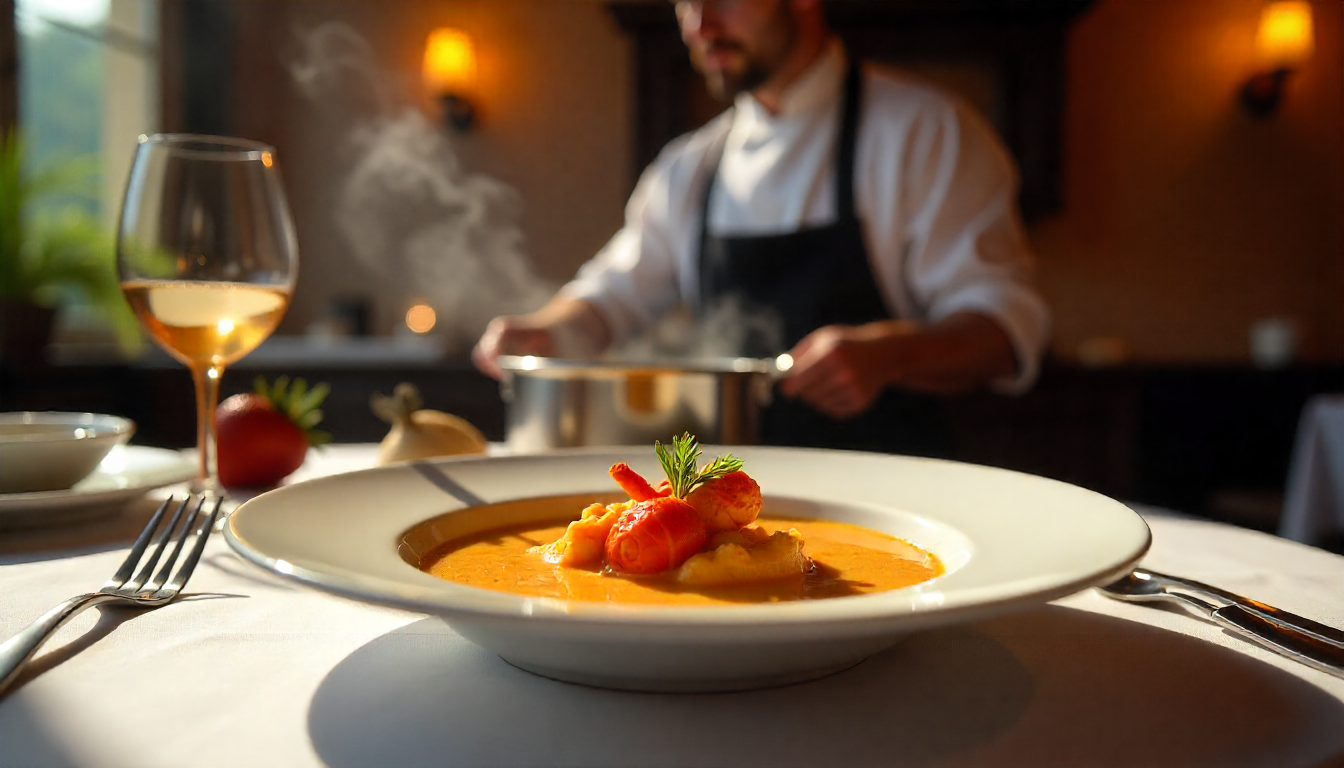Being good doesn’t save you from being forgotten: the hard truth about award-winning restaurants that vanish into thin air
28.07.2025
A Michelin Star Doesn’t Buy You a Place in Memory
You can serve the best dish in town.
Have a waitlist.
A star in the guide. A magazine interview.
But if no one remembers you three days after the experience…
You were just an expensive dinner.
Just another one.
It’s harsh, but it might be true.
Being good doesn’t save you from being forgotten.
And no one talks about that in the world of top chefs.
Everyone talks about technique, ingredient origins, natural wine lists, dim lighting, and ambient music.
But the real question is:
Who are you in your customer’s mind?
This text is hard to digest for those who believe excellence is enough.
It’s for those who think taste speaks for itself.
But maybe just speaking isn’t enough.
When the Restaurant Wins Awards, But No One Remembers the Name
Does this happen often?
A couple dining at an incredible place.
Beautiful lighting, signature dish, 10-course tasting menu.
They love the experience. They even post about it on their stories.
The next day, a friend asks:
— What restaurant was that?
Pause.
Silence.
— I think it was... the chef who did that event with so-and-so…
And that’s it.
It’s real. I say this because it happens to me.
I often try to remember names of restaurants we visited on trips, and that’s exactly what happens. The only reason I’m able to recall some is because I document my travels on video, and my wife with photos and albums.
But a generic location reference, or anything that didn’t create a real connection with me, the chef’s story, or the restaurant’s reason for existing—those get lost.
If there had been something more meaningful, I’d remember.
You can be praised by the critics and still be a blur in your customer’s memory feed.
Because your audience’s mind doesn’t just crave flavor—it latches onto meaning.

The Chef’s Ego Gets in the Way of the Restaurant’s Marketing
There’s a bitter belief among outstanding or award-winning chefs:
“My work speaks for itself.”
How romantic. Poetic. Proud.
And, in practice, not smart at all.
Because the customer isn’t in your mise en place.
They don’t see what you chop, mix, or prepare.
They only see the plate. And a plate without even a minimal explanation is just... food.
Good, maybe even excellent—but forgettable.
The truth is, many award-winning restaurants treat branding and communication as an afterthought.
They hand it off to a marketing intern to post a quick “little reel” with no context, no concept, no soul.
Or they hire agencies that churn out the same formula:
Nice plate photo, bland caption, gourmet hashtag.
And the result?
A restaurant that delivers a cinematic experience—but communicates like a bus station snack bar.
Even if it has value for the traveler.
“But the place is always packed…” — For now.
Sure, maybe you’re fully booked today.
But what about six months from now? A year?
How many award-winning restaurants have you seen vanish?
Closing their doors with a line still outside?
Today’s fame doesn’t sustain tomorrow.
Without brand perception, without emotional presence, you fall victim to the internet’s short memory.
And it’s not the audience’s fault. It’s yours.
You Have a Rich Story. A Kitchen With Identity. A Journey That Could Be a Movie.
But you don’t tell it.
You don’t show it.
You don’t build memory.
A Good Restaurant That Becomes an Unforgettable Brand Has Soul in the Window
I can name several who got this game.
Take Noma, for instance.
It’s not just food. It’s a statement. A manifesto. A worldview.
Or Bottura’s Osteria Francescana.
You don’t just eat there—you take part in a piece of art, with characters, a soundtrack, and drama.
These places don’t just serve plates.
They serve ideas.
And then, yes, the customer remembers. Talks about it. Recommends it. Returns.
Even imitates it.
I’m not debating how they do it—whether there’s lobbying involved, whether it’s right or wrong, or what other elements are at play beyond the kitchen, ingredients, and story.
What matters is: they understood it.

A Path for Those Who Want More Than a Star: They Want a Story
Let me be clear.
I’m not saying you need to become an influencer.
Or that your food needs to become a circus.
But you need to stop thinking the plate is enough.
Your restaurant needs a voice. A strong, recognizable one.
Your chef needs to become the protagonist.
Your customer needs to become a fan.
And for that to happen, you can’t outsource everything.
You need intentionality. Clear positioning. Mastery of what you want to be remembered for.
And this isn’t solved with generic marketing.
It’s solved by building meaning. With consistency.
With the courage to show what makes you... you.
I’ve said it before:
If Your Restaurant Disappears From the Feed, It’s Already Starting to Die
What do you want people to say about your restaurant two years from now?
That you had the best [insert dish or ingredient here]?
Or that you changed the way people eat and remember your brand?
The difference lies in what you build between one service and the next.
In how you position yourself, communicate, show up.
In how you become an idea—not just an address.
This, too, demands seriousness and consistency.
So Now What?
If you’ve made it this far, you already know:
Being good isn’t enough.
Being awarded isn’t enough.
Not even having a line at the door guarantees your future.
Memory is stronger than technique.
Relationship is stronger than sales.
Connection is stronger than ego.
Trust in your story is what makes people recommend you, talk about you, how you do things—and why. That’s what creates real experience.
And you can start building yours with more strategy and less improvisation.
If you want to know how, we can talk.
Maybe your story just hasn’t been told right.
And telling it well might be all it needs to become a real reference.
And you?
Is your restaurant remembered?
Or just praised?
A hot coffee and a present mind,
Renan.
Outros posts
-
Planning your audiovisual for 2026: Is it possible to be strategic and intentional in the new year ahead?
![Planning your audiovisual for 2026: Is it possible to be strategic and intentional in the new year ahead?]()

-
O ChatGPT disse: Artificial Intelligence in Documentary Production: Where Technology Adds Value — and Where It Fails
![O ChatGPT disse: Artificial Intelligence in Documentary Production: Where Technology Adds Value — and Where It Fails]()

-
Editor's difference in your strategy.
![Editor's difference in your strategy.]()

-
The Silence That Costs You Dearly The Luxury of Staying Quiet.
![The Silence That Costs You Dearly The Luxury of Staying Quiet.]()



